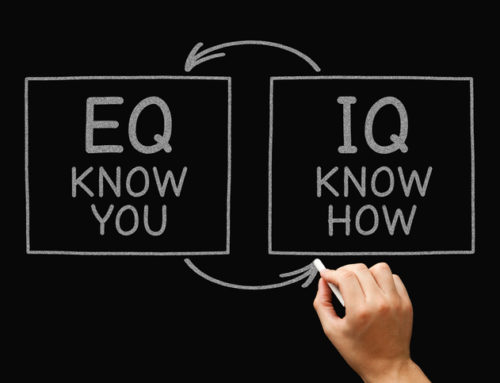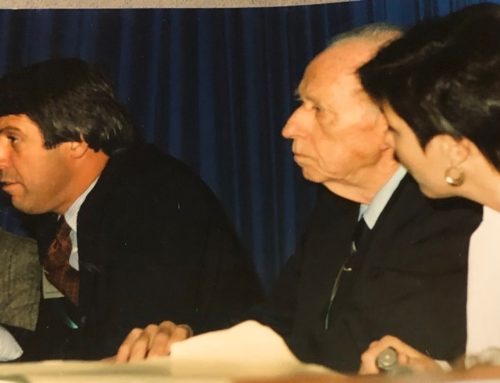by David Bork
It is possible to craft an elegant business solution but the keys to implementation are always locked up in the psychology of the decision-making group. That psychology includes how the members feel about their participation. When a family commits to using consensus as their decision-making model, they are committing to devote the time to discuss the issues until there is full agreement to go forward in implementing the decision. Note that commitment to go forward does not mean agreement with the decision. Consensus precludes voting that has a tendency to polarize the participants and often leads to “choosing sides,“ with some people on one side of the issue and others on the other side. Under those conditions, feelings are often hurt, resentments build and those feelings and resentments combine to undermine the climate of working together. If a family is committed to working together for the long term, it is best to embrace the consensus model.
Wikipedia has this definition of Consensus
:
Consensus decision-making is a group decision-making process that seeks the consent, not necessarily the agreement of participants and the resolution of objections. Consensus is defined by Merriam-Webster as, first, general agreement, and second, group solidarity of belief or sentiment. It has its origin in a Latin word meaning literally feel together. It is used to describe both the decision and the process of reaching a decision. Consensus decision-making is thus concerned with the process of reaching a consensus decision, and the social and political effects of using this process.
Consensus should not be confused with unanimity or solidarity.
There are many meanings to the word “consensus.“
The Religious Society of Friends, otherwise known as the Quakers embraced the consensus model in the 17th century. The Iroquois, a North American indigenous people, are known to have used it since the 12th century and Bushmen have used it since the beginnings of their culture. Not only are there are many meanings to the word “consensus,” there are also many variations in the ways groups use “consensus decision-making. What is clear is that this model avoids voting which almost always produces a competitive, even politicized climate.
There are common elements in all of the models. While is it not possible to discuss each model in this short column, each begins with the premise that the objective is the “common good“ of the group. The groups begin each decision-making session with a re-affirmation that the “common good“ is the objective. First the issue is identified, followed by an opportunity for each person to state their views. The process emphasizes relationship building, which is grounded in trust and cooperation. When all have spoken, the leader of the meeting summarizes the “sense“ of the discussion, pointing out any differences that might occur. The leader then moves the group through discussion of these differences through probing questions that draw out the subtitles of the matter. Once again, each person is presented the opportunity to state their views and again, the leader summarizes the “sense“ of the meeting. If it is not possible to reach full and complete agreement, the decision is deferred until the next meeting. This process is repeated until there is agreement to go forward.
Power plays are absent from the consensus model. Matters are discussed and if a view is expressed that is different from the central discussion, it is discussed in the method outlined until the issue is fully understood by all participants. In the Quaker model, the group defers the decision until the following meeting. The opposing individual is asked to “stand down“ on the matter and only when that occurs do the Quakers move forward on the matter. Not all groups use this particular methodology.
Some who oppose the consensus model argue that it allows for one person to block an important decision. Various rules can easily be established to avoid blocking. If the group is large, then they might require unanimous consent, less one person in agreement. If the group is small, it can get very tense and personalized. Other groups may designate a “wise“ leader who will determine if the one opposing view should be allowed to keep the group from moving forward on the particular decision.
Often those who oppose the consensus model take the position that “we must have a democracy“ and that means voting. The risk of this position, in terms of undermining the longterm trust and cooperation of the group, is great. It is well known that trust is the essential element to all long term relationships…short ones too. Voting puts trust at risk. When trust is breached, it is nearly impossible to rebuild.
The underlying principle of consensus decision-making is the commitment to a process that allows for all parties to contribute their ideas, feel positive about the interaction and both their role and membership in the group. Methodologies that contradict this priority are known to work against the common good of the group.
There are abundant examples of family owned enterprise where consensus is the prevailing method of making decisions. In more than forty years of consulting family enterprise, I know of no business that has sustained itself and the family relationships over time that has not embraced the consensus model.
Grant Gordon and Nigel Nicholson have written a book titled “Family Wars, Classic conflicts in family business and how to deal with them.“* In this book they chronicle the problems, alienation of family members and often the demise of very their high profile family owned businesses. They include such families as Koch, Ambani, McCain, Ford, Guiness, Bingham, Pritzker, Shoen and Gucci. Not one of these families was committed to the consensus model for decision-making. The stories are sagas of greed, power and deceit. There is great value in the study of families who have NOT been successful in managing the continuity of their enterprise. From such study we can learn a great deal of what NOT to do. It is your choice.
Does Your Family Business Need Help?
Family Business Matters has extensive experience assisting family businesses. With many decades of experience, we understand the wide variety of challenges that families face as they work together to build, grow and sustain a thriving family business generation after generation. Through conferences, continuing education programs, family business retreats, speaking engagements and private family business consulting services, Family Business Matters has assisted more than 450 family-owned businesses around the world chart their way through family business issues of all shapes and sizes.
Contact Us
For more information on how Family Business Matters can help your family business survive and thrive, please contact us today at (970) 948-5077.






